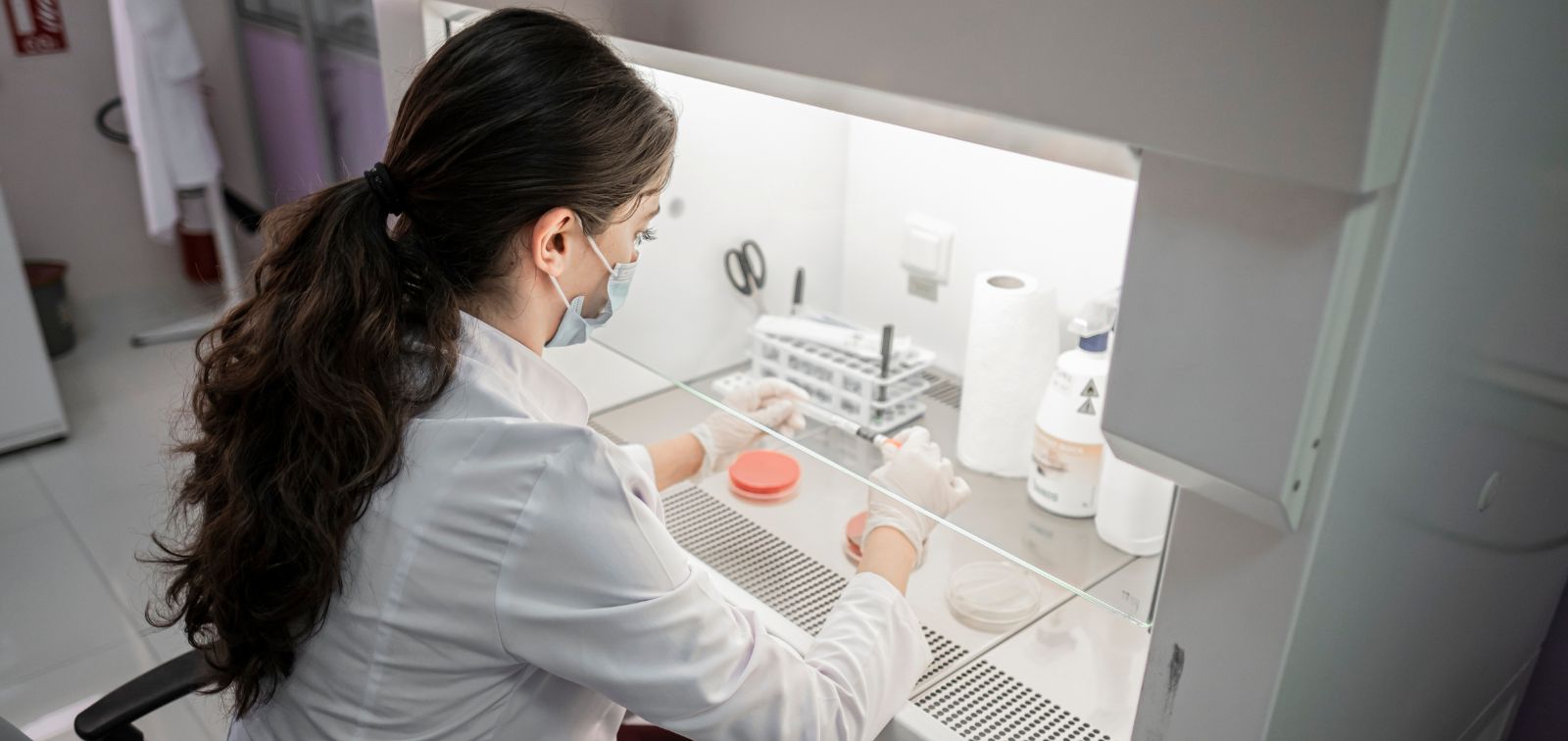VivaxEVTalk
Extracellular Vesicles as Intercellular Communicators and Biomarkers of Cryptic Erythrocytic Infections in Plasmodium vivax malaria

- Duración
- 01/09/2023 - 31/08/2026
- Coordinador
- Carmen Fernández & Hernando de Portillo
- Financiadores
- Ministerio de Ciencia, Innovación y Universidades / Unión Europea / Agencia Estatal de Investigación (Ayuda PID2022-142908OB-I00)
Plasmodium vivax is considered a resilient parasite to malaria elimination as it has evolved cryptic asymptomatic infections representing up to 90% in endemic areas. Previously, we hypothesized that in addition to hypnozoites, P. vivax also evolved cryptic erythrocytic infections in the spleen and the bone marrow and that extracellular vesicles (EVs) from infections acted as intercellular communicators facilitating parasite sequestration in these organs. Moreover, that circulating EVs from asymptomatic carriers of hypnozoites contained specific parasite proteins; thus, identifying biomarkers of latent liver infection. Of relevance, we reported the first direct evidence of the physiological role of EVs in malaria (Toda et al., 2020. Nat Commun) and identify P. vivax proteins associated with EVs (Aparici-Herraiz et al., 2022. Front Cell Infect Microbiol). Moreover, global transcriptional analysis of parasite genes whose expression was dependent on an intact spleen, identified P. vivax spleen-dependent genes likely involved in cytoadherence (Fernández-Becerra et al., 2020. Proc Natl Acad Sci U S A). Furthermore, unequivocal evidence of the presence of the parasite in the spleen was obtained in a prospective collaborative study in Timika, Indonesia (Kho et al., 2021. N. Eng. J. Med). Noticeably, it was shown that asymptomatic individuals suffering traumatic spleen ruptures contained P. vivax parasites in their spleens representing the largest parasite biomass of asymptomatic chronic infections. In addition to the spleen, we reported morphological and RNAseq studies of bone marrow aspirates from seven patients revealing the presence of parasites in this tissue and identifying down-regulated human genes involved in erythropoiesis (Brito et al., 2022. J Infect Dis). Last, proteomics analysis of circulating EVs secreted from a humanized mouse model of P. vivax hypnozoites, identified potential EV biomarkers of latent liver infections (Gualdrón-López et al., 2022. Mol Cell Proteomics).
The overarching goal of this project is to further our innovative look at this new area of intercellular communication during cryptic erythrocytic infections in malaria by deciphering different levels of parasite-host interactions. Specifically, we will pursue our functional studies of already identified spleen and BM-dependent P. vivax genes through heterologous transfections; however, due to low efficiency of CRISPR/Cas9 transgene expression in P. falciparum observed in our previous project, we will implement the P. knowlesi system which is evolutionary more closely related to P. vivax. Moreover, we will use single-cell RNA approaches in our in vivo humanized mouse model of the bone marrow and the spleen to unveil cells, receptors and signaling pathways regulated by EVs from infections in these tissues. We will validate these data through qRT-PCR using samples of the human bone marrow and spleen from our model as well as from P. vivax patients from an endemic region. Last, we will perform studies of a human population in an endemic region of P. vivax to identify biomarkers of asymptomatic infections, as well as pursuing efforts to detect them using electrochemical biosensors.
This project, based on solid evidence and opening a new chapter on the biology and life cycle of P. vivax, will contribute breaking new grounds in the field of EVs, cell-cell communication, biomarker discovery as well as developing powerful methodologies for host-parasite studies.
Total Fuding
325.000,00 €
Nuestro equipo
Coordinators
-
 Carmen Fernández Associate Research Professor
Carmen Fernández Associate Research Professor -
 Hernando del Portillo Obando ICREA Research Professor and Head of the Malaria and Neglected Parasitic Diseases Programme
Hernando del Portillo Obando ICREA Research Professor and Head of the Malaria and Neglected Parasitic Diseases Programme
ISGlobal Team
-
 Marc Nicolau Fernández Técnico de laboratorio
Marc Nicolau Fernández Técnico de laboratorio -
 Paula Crego Méndez Técnica de laboratorio
Paula Crego Méndez Técnica de laboratorio
Otros proyectos
Ver proyectos pasadosNHEPACHA
Nuevas Herramientas para el Diagnóstico y la Evaluación del Paciente con Enfermedad de Chagas
Estudio inmunológico de la vacuna RTS,S
Estudio de correlatos de protección frente a la malaria después de la vacunación con RTS,S/AS01E: Una evaluación inmunológica exhaustiva en el ensayo clínico de Fase III, doble ciego, aleatorizado, multicéntrico con un grupo control
Euroleish.net
Control of Leishmaniasis. From bench to bedside and community
GREPIMER
Grup de recerca en patología importada i malaties emergents i re-emergents
TESEO
Nuevos regímenes de quimioterapia y biomarcadores para la enfermedad de Chagas
ASINTMAL
Unravelling Disease Tolerance and Host Resistance in Afebrile 'P. falciparum' Infections: a Prospective Study in Mozambican Adults
ADAM
Administración masiva y focal de fármacos antimaláricos para avanzar hacia la eliminación de la malaria en Mozambique: acelerando la implementación de programas y políticas
Science4Pandemics
Citizens engagement digital platform for collective intelligence in pandemics
HIDDENVIVAX
Novel organ-on-a-chip technology to study extracellular vesicles-mediated cryptic infections in Plasmodium vivax malaria
Subclinical Infections in Children and Long Term Health Effects
Infection acquisition in early life and health outcomes in childhood - MARATO TV3
Herramienta innovadora de detección de enfermedades y vacunación a población inmigrante en riesgo en España
Project Code: PI21/00651
Impacto de las coinfecciones en el balance de respuestas de anticuerpos y linfocitos T helper a antígenos diana de inmunidad natural y vacunal frente a patógenos humanos prominentes
Project Code: PI20/00866
EpiGen
Building Scalable Pathogen Genomic Epidemiology in Ethiopia
MalTransc
Transcriptional regulation of adaptation and developmental decisions in malaria parasites: from epigenetic variation to directed transcriptional responses
BOHEMIA
Broad One Health Endectocide-based Malaria Intervention in Africa
RESPONSE
Mechanisms of the transcriptional responses to changes in the environment in the malaria parasite Plasmodium falciparum
VaMonoS
Unravelling the heterogoneity and function of monocytes in vaccination and immunity to malaria
CLIMSOCTRYPBOL
Insight on climate and social participatory research for integral management of vectorborne zoonosis caused by Trypanosoma cruzi and Leishmania spp. in the Bolivian Gran Chaco.
SexMal
Social affairs and sex in P. falciparum: implications for malaria elimination
MENA Migrant Health
Transforming data collection and surveillance to drive migrant health research, care and policy
MESA
La Alianza Científica para la Erradicación de la Malaria (MESA) tiene como objetivo avanzar en la ciencia de la erradicación de la malaria.
SMART
Identifying Severe Malaria with a new Aptamer-based Rapid diagnostic Test
GlycoTargets
Nuevas terapias antimaláricas dirigidas contra las vías de glicosilación de 'Plasmodium falciparum'
GenMoz
P. falciparum genomic intelligence in Mozambique



